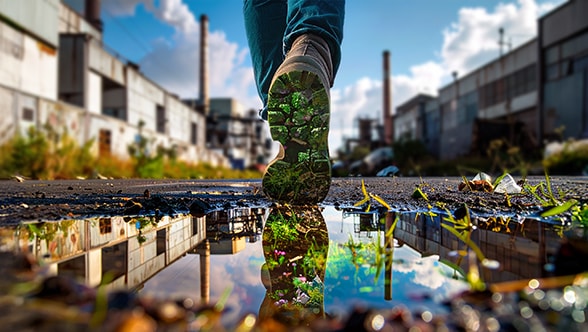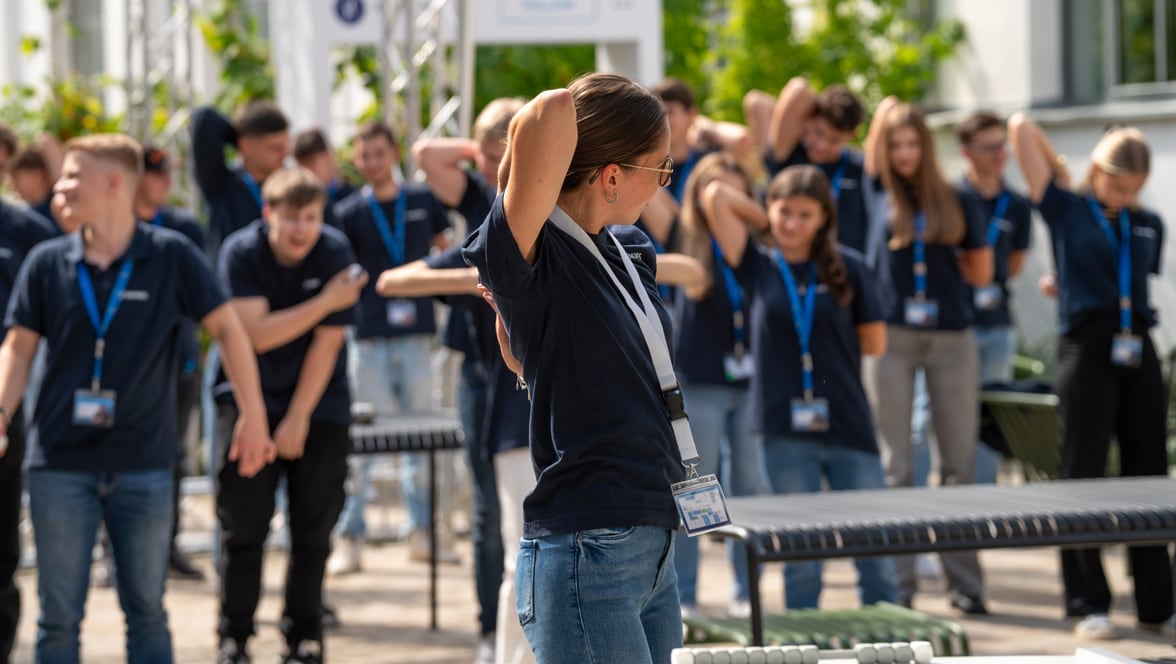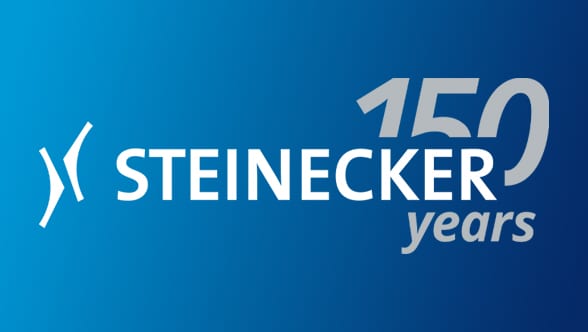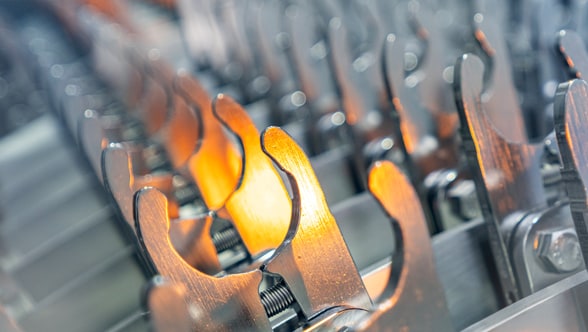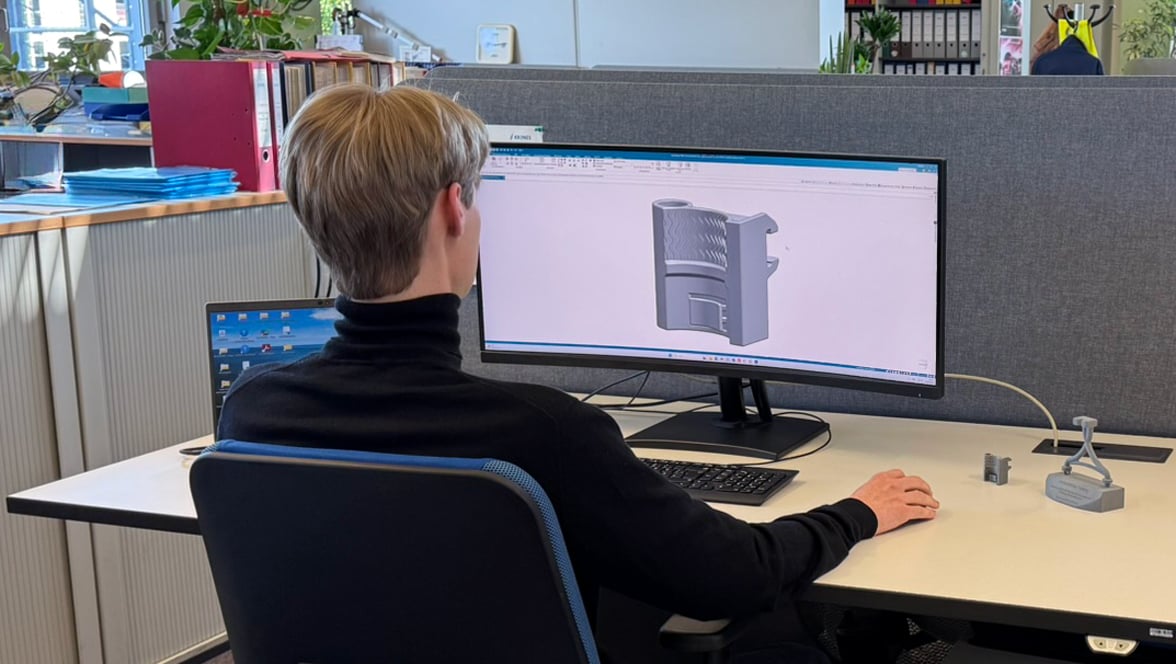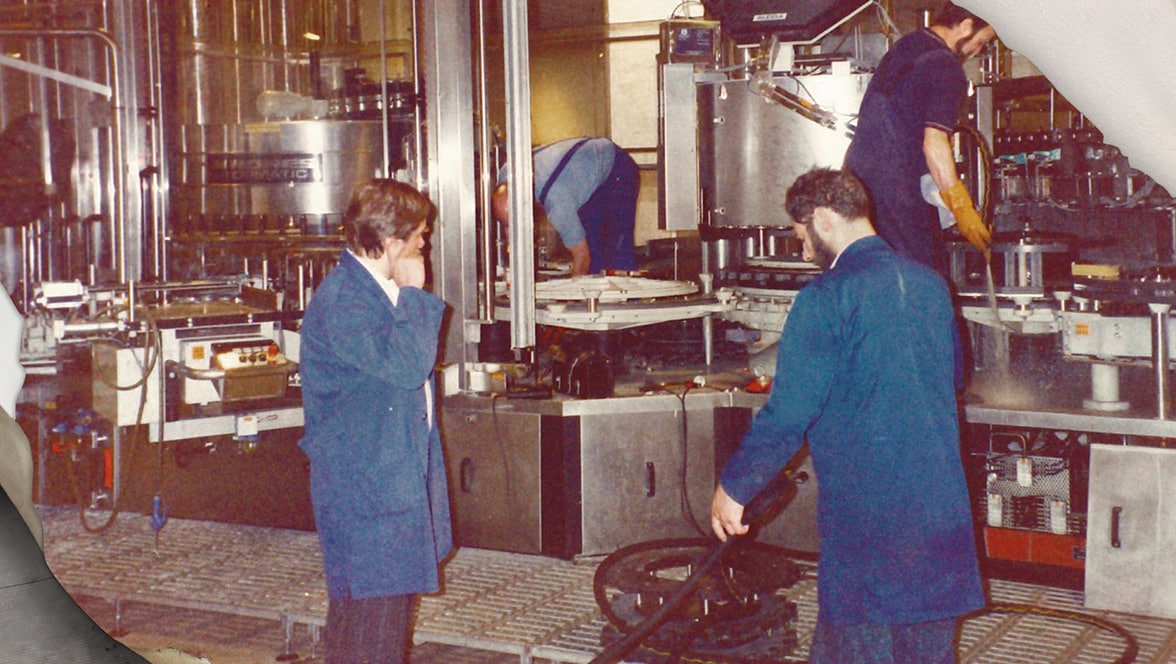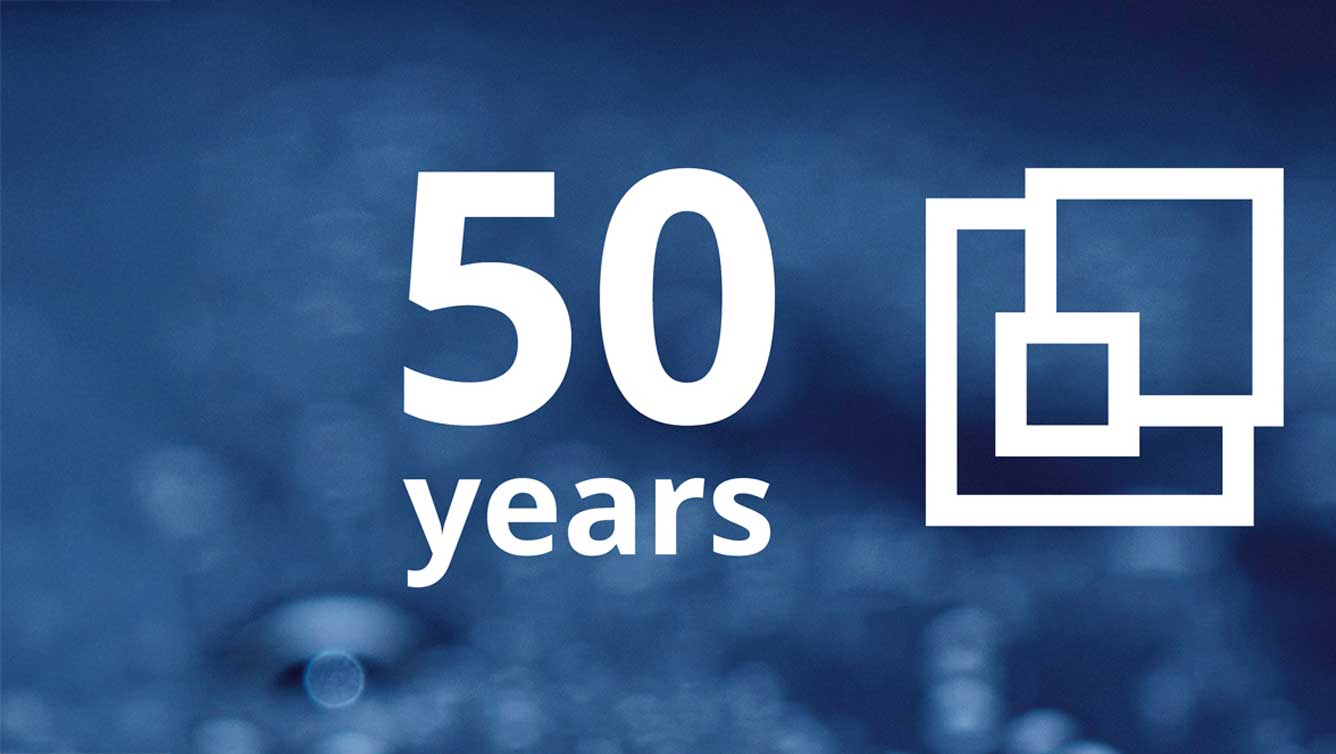And why am I telling you this? As some of you may already know, Krones has also recently joined the platform, following in the footsteps of many of its key accounts. What will now change at Krones as a result of this? And how exactly does cooperation through the platform work? Since I am at my wit’s end here, I asked an expert for help who can give us the answers we’re looking for: Jonas Fabian Hunold whose remit in the Corporate Development Department includes the long-term strategic focus of the Krones Group.
Recycling is regarded as an effective method for preserving the precious resources still available on our planet by repeatedly reprocessing them. The EU Commission, too, would like to encourage recycling – and with the European Circular Economy Stakeholder Platform is opting for voluntary support instead of statutory regulations. An approach validated by its success: since 2017, more than 50 companies have used the platform to enter into a self-imposed commitment.
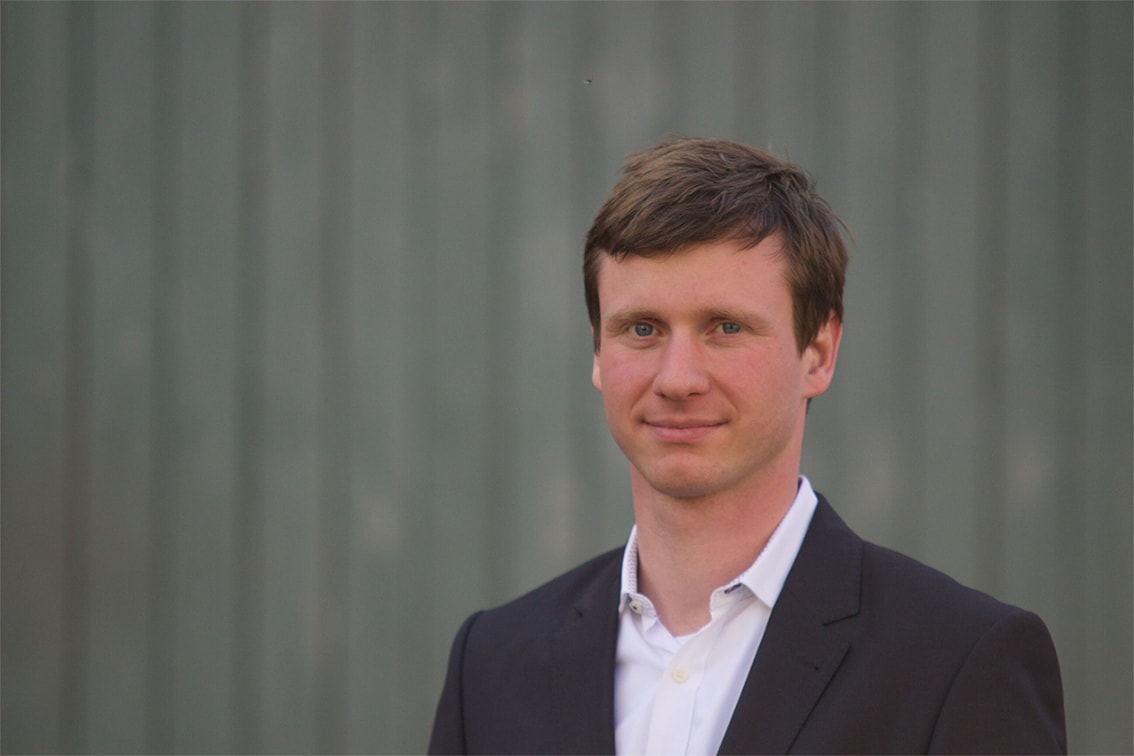
Jonas Fabian Hunold, why did we here at Krones decide to join the EU’s initiative?
About a kilogram of plastic waste per inhabitant and year is improperly disposed of, littering our oceans worldwide. Consumers, politicians and our clients will in the long term no longer be prepared to accept this state of affairs. By entering into this self-imposed commitment, Krones takes an unequivocal stance: we want to contribute towards solving the problem. This is not just a clever PR stunt because solving the problem will help us generate profitable business: “Doing well by doing good”!
What does information exchange among the initiative’s members look like? Will it possibly lead to cooperative arrangements as well?
An annual conference is held within the platform’s framework; what’s more, there are also several seminars on substantive specialisms, which means it is highly probable that we will quickly find some partners here for more in-depth collaboration.
What are the stumbling blocks that have to be overcome throughout the EU when putting in place an effective circular economy? What are the biggest obstacles at present? What tasks have top priority?
As far as packaging is concerned, there are three important issues:
Firstly: collecting and sorting empty packaging. Some countries, like Czechia and Denmark, have already come very far in this respect whereas in other nations appropriate action is still imperative.
Secondly: packaging has to be recyclable. A transparent PET bottle is almost ideal for achieving this goal, but unfortunately there are still many composite materials around that are difficult to recycle.
And thirdly: the material obtained in the recycling plant must be processed into new products of the same quality. For us, this means: bottle-to-bottle! Downcycling merely means postponing the problem.
What is it that Krones can quite specifically contribute here?
Krones is the only company in its sector that is on top of almost all the technologies needed for closing the cycle of re-usable materials with PET bottles – starting with the preform, then filling right through to recycling. When our clients will in future consider hands-on solutions for sustainable packaging, this must make the phone ring here at Krones the very next day.
Why are the Krones targets focused exclusively on plastics and packaging?
As far as sustainability is concerned, issues like climate change, recycling loops and biodiversity unfortunately get mixed up quite often, and that quickly leads to confusion and makes it more difficult to formulate unambiguous targets and measures.
Krones decided to consider each of these fields individually, with the specific purpose in mind. Regarding climate protection, for example, we are committed to the internationally recognised science-based targets, whereas we are following the EU’s above-mentioned initiative to address the problem of waste carelessly discarded and littering our natural environment.
We’re focusing on plastics because they are in most cases ultra-durable and hard-wearing. These are great characteristics for many applications, like beverage packaging, for example, but turn into a problem when there is no regulatory framework for waste collection and recovery. Unfortunately, the requisite infrastructure – for plastics, in particular – is lacking in many regions of the world – and this is a problem that requires our urgent attention.
In your view, how realistic is it to actually achieve the eight targets specified in the self-imposed commitment? Are there some among them that are easier to accomplish than others?
All of the eight targets were the subject of intensive discussions we had with the various specialist departments; we are therefore convinced that, yes, we can translate these promises into hands-on reality on time. One exciting field of research remains the first self-imposed commitment, that of processing a variety of rPET qualities (editor’s note: recycled PET). Our “Packaging Development and Consulting” working group already gave us some interesting insights into this field in May 2020, as you can read here.
What implications are involved in Krones’ self-imposed commitment to the eight targets: is there any agency or body that monitors target achievement, or to whom companies have to report their progress? Are there any consequences for a firm when it lives up to / does not live up to its commitment?
It’s us, it’s Krones itself that is most keenly interested in ensuring purposeful implementation. When we don’t achieve those targets, we will miss out on one of the biggest growth opportunities for our group and also put parts of our present-day business model at risk. There is, of course, a justified interest in transparency and monitoring on the part of the general public, too. For this reason, the members are required to publicize reports on the progress made in translating their self-imposed commitment into hands-on reality at regular intervals.
Do you hope the initiative will have some effects even outside the EU? If so, why? And what specific effects do you anticipate?
As part of the self-imposed commitment, we had to specify the intended scope of the measures we want to take. Since we achieve about 60 per cent of our sales outside Europe, we opted for “Global” as our scope – technologies from Europe with a globe-spanning impact. This aspiration is an important one since in economically emerging regions of the world, plastic waste ingress to the oceans constitutes to be a big challenge.
What influence does joining this initiative exert on Krones? What will change in the company?
We expect that now that we’ve joined the initiative this will boost our image as the leading provider of solutions for sustainable packaging technologies. Inside our company, the self-imposed commitment serves as a clear and unambiguous target that guides our research work on innovative technologies and the development of new products.


